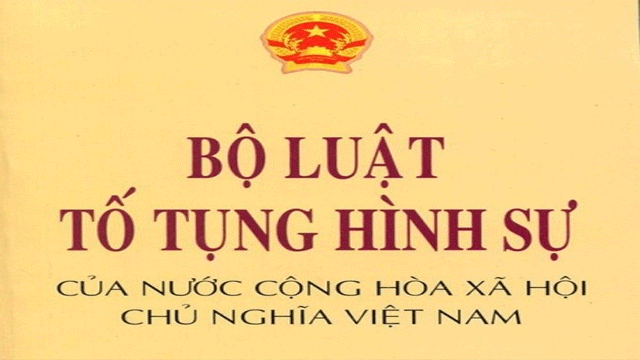https://lawnet.vn/en/vb/Bo-luat-hinh-su-2015-486D5.html?id=296661&tab=1&language=EN&DocumentLanguage=VN&LawIDVN=296661&LawIDEN=307009 provisions on determination of collusion and penalties for criminal acts
Cases considered as violations
Pursuant to Article 17 of the 2015 Criminal Code:
- Misuse is the case in which there are two or more persons intentionally committing a crime.
- Committing the organized crime is a form of complicity with close collusion among people who jointly commit the crime.
- Violators include organizers, practitioners, instigators and assistants.
+ Practitioners are persons who directly carry out crimes.
+ The organizer, who commands the execution of the crime.
+ The inciter is a person who encourages or promotes another person to commit a crime.
+ Helpers are those who create spiritual or material conditions for the commission of crimes.
- The accomplice is not held criminally responsible for the excess behavior of the practitioner."
Accordingly, the case in which two or more persons intentionally commit the same crime is regarded as a honor. Depending on the tasks and acts of each person, the role of such person shall be determined as a practitioner, organizer, inciter or assistant to examine his/her penal liability.
.png)
Is there any property stolen by others?
Holding the property stolen by others shall be considered the violation
- If the property keeper and the stolen person have plans for and taken such acts previously such as division of tasks, concealment of property or division of property, (s)he shall be considered to be in the form of organization and criminal prosecution as prescribed in Clause 2 Article 173 of the Criminal Code 2015 (amended by Clause 34 Article 1 of the Law on amendments to the Criminal Code 2017) as follows:
"Article 1. 100/2015/QH13
...
34. To amend and supplement Clause ... 2 ... Article 173 as follows:
...
2. Committing the crime in one of the following circumstances, the offenders shall be sentenced to between two and seven years of imprisonment:
a) In an organized manner;
…"
- If the holder of property does not know about the offender's act, they do not agree and plan in front of the offender. He/she does not know that his/her act is helping the offender, he/she shall not be regarded as his/her honor and shall not be examined for penal liability."
Therefore, it is necessary to base on the fact that the person who stores the property has known about a criminal act, the agreement, promise, planning,… together with the offender or not to determine his/her honor and examine his/her penal liability in this case.
 Article table of contents
Article table of contents





.Medium.png)
.Medium.png)
.Medium.png)
.Medium.png)
